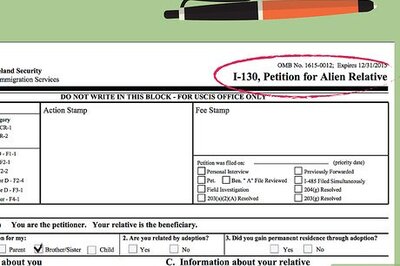
views
DUBAI/LONDON/MOSCOW: OPEC held talks on Monday on whether to extend existing oil cuts for three to four months or lift output gradually from January, as the coronavirus crisis continues to pummel fuel demand.
Officials from the Organization of the Petroleum Exporting Countries, Russia and others, a group known as OPEC+, held informal talks on Sunday before two days of formal meetings began on Monday. But they failed to agree on policy for 2021.
OPEC+ had been due to ease existing production cuts by 2 million barrels per day (bpd) from January 2021, but a second coronavirus wave has reduced demand for fuel around the world, prompting a rethink among members of the group.
OPEC+ is considering extending existing cuts of 7.7 million bpd, about 8% of global demand, into the first months of 2021, a position backed by OPEC’s de-facto leader Saudi Arabia and other major producers, OPEC+ sources told Reuters.
“It won’t be an easy meeting. Some members are against the extension of the output cut and this makes it difficult,” Iranian Oil Minister Bijan Zanganeh said, according to his ministry’s news agency SHANA.
After preliminary consultations on Sunday between Saudi, Russian and other key ministers failed to reach a consensus, sources said talks were focusing on extending cuts by three to four months or increasing output gradually from January.
Russia supports a gradual increase.
Kremlin spokesman Dmitry Peskov said differences between Russia and OPEC were not as severe as in early 2020, when disagreements led to a collapse in talks and a surge in output.
But Peskov said President Vladimir Putin had no plans to call Saudi Arabia’s leadership before the OPEC+ meeting, a move that in the past has helped smooth over any dispute.
OPEC+ has to strike a delicate balance of pushing up prices enough to help their budgets but not so much that rival U.S. output surges. U.S. shale production tends to climb as prices rise above $50 a barrel. Adding to the challenge within OPEC+, Moscow’s finances can tolerate lower oil prices than Riyadh’s.
Oil prices, which were down 0.5% around $48 by 1405 GMT, could fall as much as 10% if OPEC failed to roll over cuts, Deutsche Bank said in a note.
Oil had a bull run last week triggered by hopes for a virus vaccine and expectations of a rollover in OPEC+ cuts.
“It is clear that a global deployment of vaccines will take time, and its effect will likely begin to be significantly apparent in the second half of 2021,” Algerian Energy Minister Abdelmadjid Attar, holder of OPEC’s rotating presidency, said at the start of Monday’s meeting, ahead of OPEC+ talks on Tuesday.
Attar said oil demand would likely remain weak during the first quarter of 2021.
OPEC+ data shows a three-month extension of existing cuts would still leave oil inventories in the industrial world in 2021 above their five-year average, a key benchmark monitored by OPEC+, although the overhang would be reduced.
(Additional reporting by Alex Lawler; Writing by Dmitry Zdhannikov; Editing by Edmund Blair)
Disclaimer: This post has been auto-published from an agency feed without any modifications to the text and has not been reviewed by an editor
Read all the Latest News, Breaking News and Coronavirus News here




















Comments
0 comment